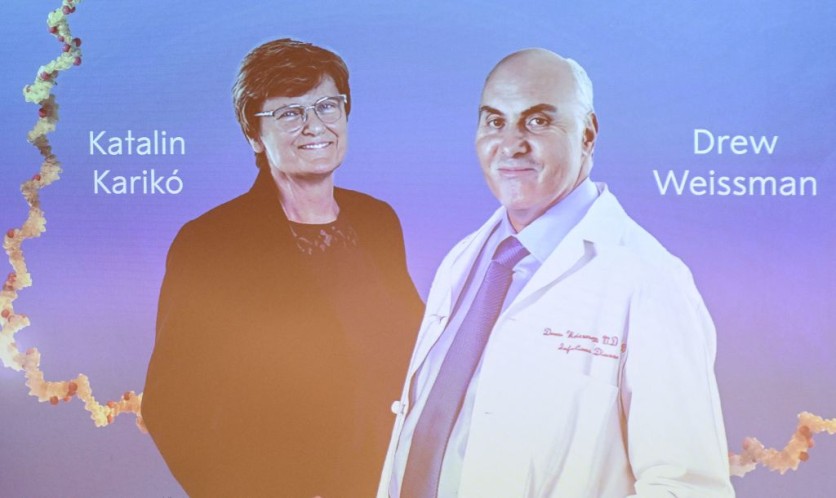
The Nobel Prize in Physiology or Medicine for 2023 has been awarded to the mRNA COVID-19 vaccine pioneers Katalin Kariko and Drew Weissman.
Their groundbreaking work in messenger RNA (mRNA) technology, which laid the foundation for developing life-saving COVID-19 vaccines, has been recognized as this year's most significant leap forward in medical science.
The Nobel committee has honored their pioneering efforts that have not only transformed the course of the ongoing pandemic but have also opened doors to a new era in vaccine development.
Revolutionizing Vaccine Technology
Traditional vaccines typically use weakened or inactivated viruses to trigger an immune response in our bodies. However, mRNA vaccines take a radically different approach.
Once injected into the body, mRNA enters cells, instructing them to produce a piece of the virus's spike protein. The immune system detects this foreign protein, generating antibodies and preparing to fight off future infections. This process provides protection without the risks associated with contracting COVID-19.
What sets mRNA vaccines apart is their incredible versatility. Researchers have been exploring mRNA vaccines for years, tackling diseases like flu, Zika, rabies, and cytomegalovirus (CMV).
Additionally, they have been investigating its potential in cancer research, aiming to harness the immune system to combat specific cancer cells. This adaptability, coupled with their rapid development, marks a paradigm shift in vaccine technology.
Read Also : New Split Gene-Editing Tool Promises to Reduce Unwanted Mutations That Cause Disease by Over 70%
The Heroes Behind mRNA Vaccines
Katalin Kariko and Drew Weissman may now bask in the glory of the Nobel Prize, but their journey to this pinnacle of recognition took a lot of work.
Phys.org tells us that their scientific collaboration dates back to the early 1990s at the University of Pennsylvania when mRNA was considered an obscure field of study.
Kariko was particularly determined to unlock the potential of mRNA, believing it held the key to treating diseases that required specific protein production.
Despite facing obstacles and grant rejections, Kariko persisted in her quest to harness mRNA's therapeutic potential. One of the most significant challenges was dealing with the immune system's inflammatory response to synthetic mRNA in animal experiments.
However, in 2005, Kariko and Weissman made a crucial breakthrough by modifying one of the mRNA's building blocks. This innovation paved the way for developing safe mRNA vaccines for humans.
Another pivotal discovery occurred in 2015 when they found a way to deliver mRNA effectively into cells using "lipid nanoparticles," which prevented mRNA degradation and ensured it reached the right cellular location.
These breakthroughs were instrumental in the development of the COVID-19 vaccines produced by Pfizer-BioNTech and Moderna.
A Nobel for Saving Lives
The Nobel committee's decision to honor Kariko and Weissman for their work in mRNA technology represents a departure from its traditional focus on decades-old research.
This recognition reflects the urgency and impact of their contributions during the COVID-19 pandemic.
The mRNA vaccines, approved in December 2020, have been a lifeline, saving countless lives and preventing severe illness globally.
Stay posted here at Tech Times.
Related Article : USPS Resumes Nationwide Free COVID Test Shipments with $600 Million White House Boost

ⓒ 2025 TECHTIMES.com All rights reserved. Do not reproduce without permission.




